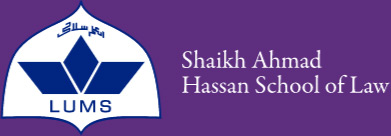The LUMS Law Journal (LLJ) was initiated in 2013 at a time when Pakistan was experiencing its first democratic transition after a democratically elected government was completing its full term. At this juncture, constitutional debate was ripe owing to the elections and the 18th Constitutional Amendment. While these issues were and still are being debated, there is a dearth of legal scholarship on this subject. It is for this reason, amongst others, that Constitutional Law and Politics in Pakistan was chosen as the theme for the first issue of the LLJ.
Thumbnail Image




